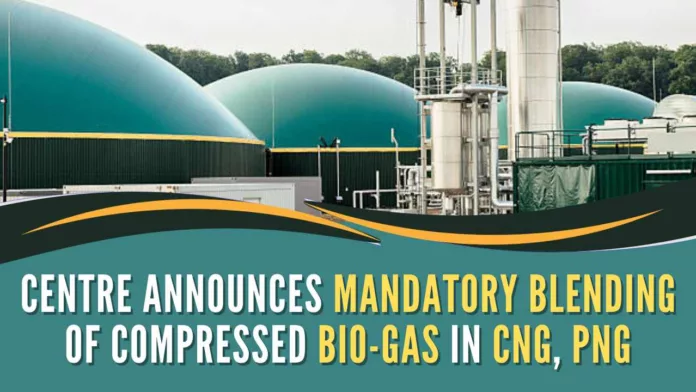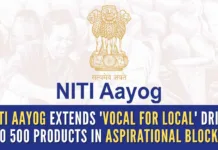
A roadmap to ‘greener future’: Govt mandates bio-gas blending, propelling sustainable energy
The National Biofuels Coordination Committee has announced the introduction of phase-wise mandatory blending of Compressed Bio-Gas (CBG) in CNG (transport) and PNG (domestic cooking) segments of the city gas distribution sector.
The meeting was chaired by the Union Petroleum Minister Hardeep Singh Puri.
Hardeep Singh Puri said that the decision would encourage investment of around Rs.37,500 crores and facilitate the establishment of 750 CBG projects by 2028-29.
The key objective is to stimulate demand for CBG which will lead to reduced imports of costly Liquefied Natural Gas (LNG) and savings in foreign exchange while assisting in achieving the target of net zero emission.
It has been decided that the CBG blending obligation will be voluntary till the financial year 2024-2025 and the mandatory blending obligation would start from 2025-26.
CBG blending obligation will be kept as 1 percent, 3 percent, and 4 percent of total CNG/ PNG consumption for FY 2025-26, 2026- 27, and 2027-28 respectively. From 2028-29 onwards CBG blending obligation will be 5 percent.
A Central Repository Body (CRB) will monitor and implement the blending mandate based on the operational guidelines approved by the Minister for Petroleum and Natural Gas.
Discussions also took place for promoting the production of ethanol from maize with all stakeholders especially with the Department of Agriculture and Department of Food and Public Distribution (DFPD) to make it a prominent feedstock in coming years. It was discussed that in the last few years, there has been an increase in Maize cultivation area, yield per hectare, and production.
Work has been initiated by this ministry in consultation with the Department of Agriculture and DFPD to further develop high starch-yielding varieties, improve the quality of maize DDGS (Dried Distillers Grain Solids) by removing aflatoxins, faster registration of new seed varieties with high starch.
On Friday another important announcement was made for promoting bio-fuels in the country. Sustainable Aviation Fuel (SAF/Bio-ATF) initial indicative blending percentage targets were set by the committee.
Based on the comments received from the stakeholders, like MoCA, Niti Aayog, and oil companies OMCs, the capacities of Sustainable Aviation Fuel plants coming up in the country, and projected aviation turbine fuel sales, the following initial indicative blending percentages of SAF in ATF are approved: 1 percent SAF indicative blending target in 2027 (Initially for International flights); 2 percent SAF blending target in 2028 (Initially for International flights).
[With Inputs from IANS]
For all the latest updates, download PGurus App.
- BJP drops 2-term sitting MP Poonam Mahajan; fields 26/11 counsel Ujjwal Nikam from Mumbai North Central - April 27, 2024
- RBI sets criteria for Small Finance Banks seeking Universal Banks license - April 27, 2024
- 16 Indian crew members on seized cargo ship to be released soon: Iran Foreign Minister - April 27, 2024










